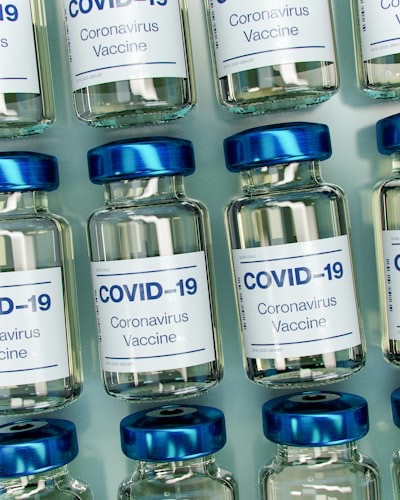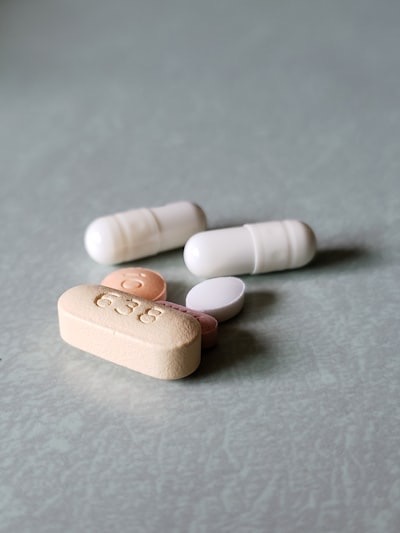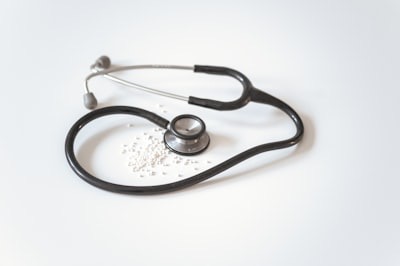Exploring Drug Side Effects: A Comprehensive Guide

Key Highlights
- Drug side effects can range from mild severe and can include common like nausea, drowsiness, and dry mouth.
- Some side effects can be serious and may require immediate medical attention, such as high blood pressure or allergic reactions.
- It is important to understand the potential side effects of any medication and to manage them effectively.
- Healthcare professionals play a crucial role in predicting and managing drug side effects.
- Identifying and managing side effects is essential for ensuring the safe and effective use of medications.
- By being aware the potential side effects and knowing when to medical help, individuals take control of their health and minimize the risks associated with medication use.
Introduction

Drug medications have become an integral part of healthcare, helping to manage various health conditions and improve quality of life. While medications have the power to alleviate symptoms, fight infections, and control chronic diseases like high blood pressure and diabetes, they can also have unwanted effects on the body. These effects, known as drug side effects, can range from mild nuisances to serious complications. Understanding drug side effects is crucial for both healthcare professionals and individuals who take medications.
Drug side effects, also known as adverse reactions, are unwanted or unexpected effects caused by medications. They can occur when a drug interacts with the body, leading to changes in normal bodily functions. Side effects can manifest in various ways, affecting different parts of the body. They can range from common symptoms like nausea, drowsiness, and dry mouth to more severe reactions such as high blood pressure and allergic responses, including a runny nose.
It is important to note that not everyone will experience the same side effects when taking a particular drug. Factors such as individual health, genetics, and the specific medication being taken can influence the likelihood and severity of side effects. Additionally, some individuals may be more susceptible to certain side effects due to pre-existing medical conditions or interactions with other medications. This is why it is essential to consult with healthcare professionals when starting a new medication.
Understanding Drug Side Effects

To fully grasp the concept of drug side effects, it is important to understand what they are and how they occur. Drug side effects are unwanted or unexpected effects that occur as a result of taking medication. They can range from mild discomfort to severe complications and can affect different parts of the body. Side effects can occur due to various reasons, including interactions with other medications, the body’s reaction to new substances, and individual factors such as genetics. Identifying and managing side effects is essential to ensure the safe and effective use of medications.
What Are Drug Side Effects?
Drug side effects, also known as adverse reactions, refer to the unwanted or unexpected effects that occur when taking medication. These effects can range from mild discomfort to severe complications and can vary from person to person. Side effects can affect different parts of the body and can be temporary or long-lasting. They can occur due to various reasons, including interactions with other medications, the body’s reaction to new substances, and individual factors such as genetics. It is important to be aware of the potential side effects of a drug and to consult with a healthcare professional if any occur.
Side effects can manifest in different ways, depending on the specific medication and individual factors. Common side effects include nausea, drowsiness, dry mouth, upset stomach, diarrhea, and rash. These side effects are usually mild and go away after discontinuing the medication. However, some side effects can be more serious and may require medical attention. It is important to report any unusual or severe side effects to healthcare professionals to ensure proper management and treatment. By understanding the nature of drug side effects, individuals can make informed decisions about their medication use and seek appropriate medical guidance when needed.
Common Types of Drug Side Effects

Common side effects of drug medications can vary depending on the specific medication and individual factors. While not everyone will experience the same side effects, there are some common symptoms that are often associated with medication use. These include:
- Nausea: A feeling of discomfort or unease in the stomach, often accompanied by the urge to vomit.
- Drowsiness: A state of excessive sleepiness or tiredness, which can affect daily activities and alertness.
- Dry mouth: A condition characterized by a lack of saliva production, leading to a dry and parched sensation in the mouth.
- Upset stomach: A general feeling of discomfort or pain in the stomach, often accompanied by symptoms like bloating or indigestion.
- Diarrhea: Frequent, loose, or watery bowel movements that can be accompanied by abdominal pain or cramping.
- Rash: A change in the skin’s appearance, characterized by redness, itching, or irritation.
It is important to note that these common side effects are typically mild and go away after discontinuing the medication. However, if these symptoms persist or worsen, it is important to seek medical advice. Additionally, it is essential to be aware of any potential allergic reactions or drug reactions, which can manifest as severe rashes, difficulty breathing, or swelling of the face, lips, or throat. If any of these symptoms occur, immediate medical attention is necessary.
Causes of Drug Side Effects
There are several factors that can contribute to the occurrence of drug side effects. These include interactions with other medications and the body’s reaction to new substances.
One of the main causes of drug side effects is drug interaction. When two or more medications are taken together, they can interact in various ways, leading to unexpected or intensified effects. It is important to inform healthcare professionals about all the medications, including over-the-counter (OTC) medicines and dietary supplements, being taken to avoid potential interactions.
Additionally, the body’s reaction to new substances can also contribute to side effects. When a person starts taking a new medication, their immune system may react differently, resulting in side effects. This is especially common with medications that are new to the market or have undergone recent changes in formulation.
Interaction with Other Medications

Drug interactions occur when one medication affects the way another medication works. This can lead to unwanted side effects, reduced efficacy, or even potential harm. Interactions can occur between two or more prescription medications, over-the-counter medicines, or between medications and dietary supplements.
There are several factors that can contribute to drug interactions. These include the chemical composition of the medications, the way they are metabolized by the body, and individual factors such as genetics and underlying health conditions. Some medications can interact with specific foods or beverages, further complicating the potential for drug interactions.
Pharmaceutical companies have a responsibility to thoroughly test their medications for potential interactions before they are approved for use. However, new drug interactions may still arise once the medication is on the market and more people are taking it. It is important for healthcare professionals to stay updated on the latest information regarding drug interactions and educate their patients accordingly.
To minimize the risk of drug interactions, it is important for individuals to inform their healthcare providers about all the medications they are taking, including over-the-counter medicines and dietary supplements. This allows healthcare professionals to make informed decisions about medication use and potentially adjust dosages or prescribe alternative medications to avoid potential interactions. Additionally, individuals can consult resources such as the FDA Pharmacists Help You Use Medicines Safely program and the Harmful Interactions guide from the National Institute on Alcohol Abuse and Alcoholism and the National Center for Complementary and Integrative Health’s Know the Science guide on medication and supplement interactions.
Body’s Reaction to New Substances

When the body is exposed to a new substance, such as a medication, it can trigger an immune response. In some cases, this immune response can result in an allergic reaction, including hives. An allergic reaction occurs when the immune system mistakenly identifies a harmless substance as harmful and mounts a defense mechanism against it.
Allergic reactions can vary in severity, ranging from mild symptoms like itching and rash to more severe symptoms like difficulty breathing and anaphylaxis. Anaphylaxis is a life-threatening allergic reaction that can cause a drop in blood pressure, difficulty breathing, and loss of consciousness.
When new drug applications are submitted to regulatory bodies like the FDA, they undergo rigorous testing to assess their safety and efficacy. However, it is important to note that not all potential side effects may be identified during the testing phase. Some side effects may only become apparent once the medication is on the market and more people are taking it, making it crucial to closely monitor drug administration and any unwanted or unexpected reactions.
It is essential for individuals to be aware of the potential for allergic reactions and to report any unusual symptoms to their healthcare providers. It is especially important to seek immediate medical attention if symptoms of anaphylaxis occur.
Identifying and Managing Side Effects

Identifying and managing side effects is crucial to ensure the safe and effective use of medications. By recognizing and addressing side effects early on, individuals can minimize the impact on their health and well-being. Notable examples of approaches for managing specific side effects can be found in Table 3. It is important to be proactive in monitoring for side effects and seeking appropriate medical attention when necessary.
Symptoms to Watch For
When taking medications, it is important to be aware of any changes in your body that may indicate a side effect. Common symptoms to watch for include:
- High blood pressure: Symptoms may include persistent headaches, dizziness, or blurred vision. It is important to monitor blood pressure regularly and seek medical attention if it remains consistently high.
- Low blood pressure: Symptoms may include lightheadedness, fainting, or feeling weak. If you experience these symptoms, it is important to seek medical attention.
- Changes in breathing rate: Rapid or shallow breathing can be a sign of a serious side effect. If you experience difficulty breathing or notice changes in your breathing pattern, seek medical help immediately.
- Vomiting: Frequent or severe vomiting can lead to dehydration and electrolyte imbalances. It is important to stay hydrated and seek medical attention if vomiting persists.
If you experience any of these symptoms or notice any other unusual changes in your body while taking medication, it is important to consult with your healthcare provider. They can assess your symptoms and determine the best course of action.
When to Seek Medical Help

While many side effects are mild and resolve on their own, there are certain situations where immediate medical attention is necessary. It is important to seek medical help if you experience any of the following:
- Severe side effects: This includes symptoms such as difficulty breathing, chest pain, severe allergic reactions, or changes in mental status. These symptoms may indicate a serious adverse reaction and require immediate medical attention.
- Symptoms that persist or worsen: If side effects continue or become more severe over time, it is important to consult with your healthcare provider. They can assess the situation and determine the appropriate course of action.
- Concerns or questions: If you have any concerns or questions about your medication or its potential side effects, it is always best to consult with your healthcare provider. They can provide guidance and address any concerns you may have.
It is important to remember that healthcare providers are there to help and provide medical advice. If you are unsure about whether or not to seek medical help, it is always best to err on the side of caution and consult with a healthcare professional.
Role of Healthcare Providers

Healthcare providers play a crucial role in predicting and managing drug side effects. They have the knowledge and expertise to assess the potential risks and benefits of medications and determine the best course of action for each individual. By working closely with their patients, healthcare providers can predict side effects based on a patient’s medical history, current medications, and individual factors. It is important for patients to be active members of their healthcare team and communicate openly with their health care provider and pharmacist about any concerns or potential side effects.
In addition to predicting side effects, healthcare providers also play a key role in adjusting medications to minimize risks. They can prescribe alternative medications, adjust dosages, or monitor patients closely to ensure optimal outcomes and minimize the occurrence of side effects.
How Doctors Predict Side Effects

Healthcare providers use various methods to predict the potential side effects of medications. They consider factors such as the medication’s mechanism of action, known side effects from previous studies, and patient-specific factors such as age, gender, and overall health.
Doctors rely on their clinical experience and knowledge of pharmacology to identify potential side effects based on the medication’s properties and how it interacts with the body. They may also use tools such as clinical guidelines and drug databases to gather information about specific medications.
Predicting side effects requires a comprehensive understanding of the medication’s potential effects on the body and how it interacts with other medications or underlying medical conditions. This is why it is important to consult with healthcare professionals who have the expertise to assess the potential risks and benefits of medications and provide appropriate guidance and treatment options. Healthcare providers, including general practitioners, can play a crucial role in predicting and managing side effects to ensure safe and effective medication use.
Adjusting Medications to Minimize Risks

Healthcare providers have the ability to adjust medications to minimize the risks associated with side effects. They can prescribe alternative medications or adjust dosages to achieve the desired therapeutic effect while minimizing the occurrence of side effects.
Dosage adjustments may involve starting at a lower dose and gradually increasing it to minimize side effects. Healthcare providers may also consider the route of administration (e.g., oral, topical, injection) to minimize the risk of side effects.
In addition to adjusting medication dosages, healthcare providers closely monitor patients for any adverse events or changes in side effects. Regular follow-up appointments allow healthcare providers to assess the effectiveness of the medication and make any necessary adjustments to minimize risks.
It is important for individuals to communicate openly with their healthcare providers about any side effects or concerns they may have. This allows healthcare providers to make informed decisions about medication adjustments and ensure the safe and effective use of medications.
The Impact of Lifestyle Choices
Lifestyle choices can have a significant impact on the occurrence and management of drug side effects. Factors such as diet, exercise, and alcohol consumption can influence the body’s response to medications and the risk of side effects.
Certain foods and beverages can interact with medications, altering their effectiveness or increasing the risk of side effects. For example, grapefruit juice can interfere with the metabolism of certain medications, leading to increased drug levels in the body.
Maintaining a healthy lifestyle through regular exercise and a balanced diet can also contribute to better overall health and reduce the risk of side effects. Additionally, avoiding excessive alcohol consumption can help minimize the risk of medication interactions and adverse reactions.
By making informed lifestyle choices and following healthcare provider recommendations, individuals can play an active role in managing and reducing the occurrence of drug side effects.
Diet and Drug Interactions
When taking medications, it is important to be aware of potential interactions with certain foods and beverages. For example, some medications may interact with dietary supplements, such as herbal remedies or vitamins, leading to reduced effectiveness or increased side effects. Grapefruit juice is another common culprit when it comes to drug interactions. It can affect the way certain medications are metabolized in the body, leading to higher levels of the drug in the bloodstream. This can increase the risk of side effects, including hepatitis, or inflammation of the liver. Additionally, alcohol abuse can have detrimental effects on the liver, which is responsible for metabolizing medications. It is important to discuss any dietary restrictions or alcohol consumption with healthcare professionals to ensure the safe and effective use of medications.
The Effect of Alcohol and Smoking
Alcohol and smoking can have significant impacts on the body and can interact with medications in various ways. For example, excessive alcohol consumption can lead to liver damage, affecting the metabolism and clearance of medications from the body. It can also increase the risk of certain side effects, such as gastrointestinal bleeding or impaired coordination. Smoking, on the other hand, can interfere with the effectiveness of certain medications, particularly those used to treat respiratory conditions. It can also worsen inflammation in the body and compromise the immune system. Furthermore, smoking can affect appetite and nutrient absorption, potentially impacting the effectiveness of medications that require specific dietary considerations. Additionally, combining alcohol with opioids, a strong prescription pain medicine, can increase the risk of overdose and other dangerous side effects. It is important to discuss alcohol and smoking habits with healthcare professionals to ensure the safe and optimal use of medications.
Preventative Measures and Safety Tips
When taking medications, it is important to follow certain preventative measures and safety tips to minimize the risk of side effects. Firstly, it is crucial to always follow the prescription guidelines provided by health care professionals. This includes taking medications at the recommended dosage and frequency, as well as avoiding any interactions with other medications or substances. Regular check-ups and monitoring are also essential to ensure that medications are working effectively and to detect any potential side effects early on. It is important to maintain open communication with health care professionals and pharmacists to address any concerns or questions regarding medication safety and usage.
Importance of Following Prescription Guidelines
Following the prescription guidelines provided by healthcare professionals is crucial for safe and effective medication use. Prescription medicines are specifically tailored to individual needs, and deviating from the recommended dosage or frequency can have adverse effects. It is important to take medications as instructed and to not alter the prescribed regimen without consulting a healthcare provider. They can provide valuable guidance and information regarding potential side effects, interactions, and precautions. Pharmacists also play a vital role in medication safety by providing accurate dosage instructions, identifying potential drug interactions, and offering advice on storage and administration. By following prescription guidelines and maintaining open communication with healthcare professionals and pharmacists, individuals can ensure the safe and optimal use of prescription medications.
Regular Check-ups and Monitoring
Regular check-ups and monitoring are essential when taking medications to ensure their effectiveness and detect any potential side effects. Healthcare professionals play a crucial role in monitoring the progress of treatment and adjusting medications if necessary. They can also conduct routine tests, such as blood pressure measurements, to assess the impact of medications on overall health. Monitoring blood pressure is particularly important for individuals taking medications that can affect blood pressure levels. Regular check-ups also provide an opportunity for individuals to discuss any concerns or questions regarding medication side effects and to receive guidance on lifestyle modifications or additional treatment options. By staying proactive and maintaining regular contact with healthcare professionals, individuals can ensure their medications are working effectively and minimize the risk of side effects.
Exploring Alternative Treatments
In addition to conventional medications, alternative treatments and natural remedies have gained popularity in managing various health conditions. Natural remedies, such as herbal supplements or dietary changes, are often used as adjunctive therapies or alternatives to conventional medications. However, it is important to approach alternative treatments with caution and consult healthcare professionals. Natural remedies may have their own side effects or interactions with medications. It is crucial to discuss alternative treatment options with healthcare providers to ensure their safety, efficacy, and compatibility with existing medication regimens. Healthcare professionals can provide valuable guidance and help individuals make informed decisions regarding alternative treatments.
Natural Remedies and Their Safety
Natural remedies, including dietary supplements and herbal remedies, are commonly used as alternative treatments for various health conditions. While natural remedies may have potential benefits, their safety and efficacy vary greatly. It is important to approach natural remedies with caution and consult healthcare professionals before starting any new treatment. Natural remedies can interact with medications, causing adverse reactions or reducing the effectiveness of the medication. Some natural remedies may also have side effects of their own, such as allergic reactions or gastrointestinal symptoms. To ensure the safe use of natural remedies, individuals should discuss their use with healthcare providers, disclose all medications and supplements being taken, and follow the recommended dosage and usage guidelines. It is also important to purchase natural remedies from reputable sources to ensure their quality and safety.
Discussing Alternatives with Your Healthcare Provider
When considering alternative treatments, it is crucial to have open and honest discussions with healthcare professionals. Healthcare providers have extensive knowledge and experience in managing various health conditions and can provide valuable insights into alternative treatment options. They can assess the safety and efficacy of alternative treatments, as well as their potential interactions with existing medications. By discussing alternatives with healthcare providers, individuals can make informed decisions about their treatment plans and ensure that alternative treatments are compatible with their overall healthcare goals. Healthcare professionals can also provide guidance on integrating alternative treatments into existing medication regimens, monitor their effectiveness, and make any necessary adjustments. Open communication with healthcare providers is key to ensuring the safe and optimal utilization of alternative treatments.
Conclusion
In conclusion, understanding drug side effects is crucial for safe and effective medication management. By recognizing symptoms, seeking timely medical assistance, and engaging with healthcare providers, you can navigate potential risks more efficiently. Lifestyle choices, preventative measures, and alternative treatments also play a significant role in mitigating adverse reactions. Remember to follow prescription guidelines diligently and prioritize regular check-ups for monitoring. Your health is paramount, and being informed empowers you to make well-informed decisions regarding your well-being. Stay proactive, stay informed, and prioritize your health above all else.
Frequently Asked Questions
What Should I Do If I Experience a Severe Side Effect?
If you experience a severe side effect from a medication, it is important to seek medical advice immediately. Contact your healthcare professional or go to the nearest emergency room for prompt evaluation and treatment. They can assess the severity of the side effect and provide appropriate medical intervention. It is crucial not to ignore or downplay severe side effects, as they can be indicative of a serious medical condition or require immediate medical attention.
Can Lifestyle Changes Reduce Side Effects?
In some cases, lifestyle changes can help reduce the occurrence or severity of certain medication side effects. For example, maintaining a healthy diet and exercising regularly can improve overall health and potentially minimize side effects, such as gastrointestinal issues or weight gain. However, it is important to consult healthcare professionals before making any significant lifestyle changes or modifications to medication regimens. They can provide personalized recommendations based on individual health needs and medication profiles.
How Do I Report a Drug Side Effect?
To report a drug side effect, individuals can utilize the FDA’s MedWatch program. MedWatch is a voluntary reporting system that allows individuals to report adverse events or side effects associated with medications. Reports can be submitted online through the FDA’s official website or by calling the toll-free number provided. Reporting side effects is crucial in helping the FDA monitor the safety of medications and take necessary actions to protect public health.
Are There Long-Term Effects of Medication Side Effects?
In some cases, medication side effects may have long-term implications, particularly if they are not managed appropriately or if they occur in individuals with pre-existing chronic conditions. It is important for healthcare providers to educate patients about potential long-term effects and provide appropriate monitoring and management strategies. Regular check-ups and open communication with healthcare providers can help address any concerns or questions regarding long-term effects of medication side effects, ensuring the comprehensive and individualized care of patients.
https://www.fda.gov/Safety/MedWatch/HowToReport
https://pubmed.ncbi.nlm.nih.gov/33884456
https://www.fda.gov/consumers/consumer-updates/fda-pharmacists-help-you-use-medicines-safely
https://familydoctor.org/otc-medicines-know-your-risks-and-reduce-them
https://es.familydoctor.org/medicamentos-y-comida-cuando-no-pueden-ir-juntos
https://www.niaaa.nih.gov/publications/brochures-and-fact-sheets/reacciones-adversas
https://www.mayoclinic.org/first-aid/first-aid-anaphylaxis/basics/ART-20056608
